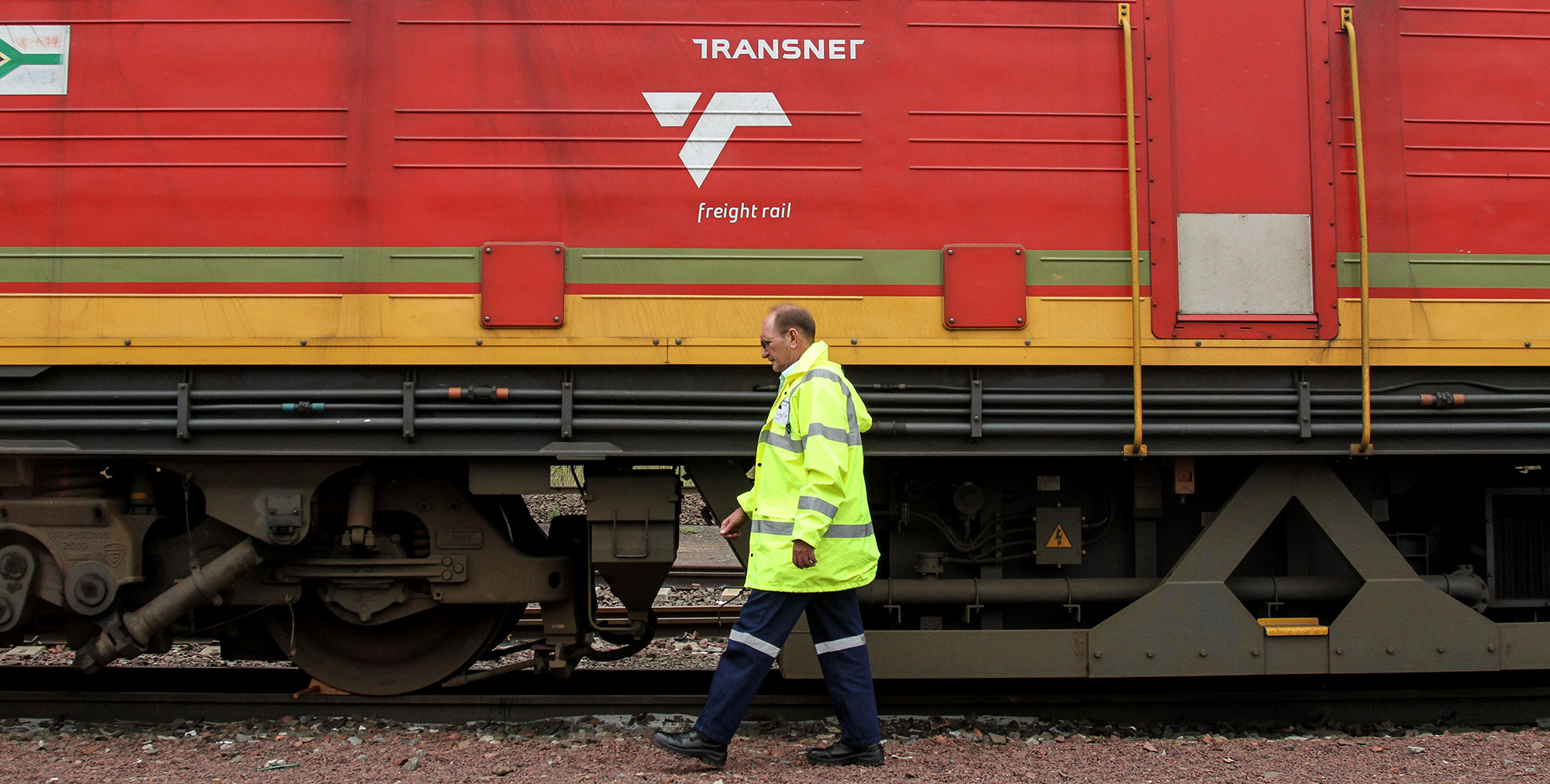As investors and lenders doffed their working caps for 2024, Transnet released financial results on New Year’s Eve showing that efforts to fix the state-owned transport group are going at a glacial pace.
Transnet’s financial and operational affairs have gone in the wrong direction in recent months, as seen in its interim results released on Tuesday, 31 December. Transnet released the results three months after the end of its reporting period.
The parastatal extended its money-losing streak, recording a financial loss of R2.16-billion during the six months ending September 2024, which widened from a loss of R1.57-billion penciled in during the comparable period in 2023.
Transnet is important for South Africa’s economy because it is responsible for ferrying most of the iron ore and coal that the country produces and exports worldwide. It also has a major role in carrying freight and fuel around the country and helping importers land their goods at ports. When Transnet isn’t operating properly, many businesses and South Africa’s exports come to a standstill.
Problems at rail operations
There are still problems with Transnet’s operations, mainly its freight rail network and ports.
Exporters are facing problems in railing their goods to market and this can be seen at Transnet Freight Rail. This is the largest division at Transnet as it generated 53% of the R41.5-billion revenue that the state-owned entity (SOE) generated from its logistics operations.
Transnet Freight Rail’s revenue, which is generated from the contracts it mainly has with the broader mining sector, increased by 8.7% to R22-billion. The increase was helped by some improvements to operational efficiency at Transnet, but largely due to an increase in tariffs the company charges customers to rail their goods to markets.
Beyond mining goods, Transnet Freight Rail also rails steel, cement, agricultural products and bulk liquids. Total volumes increased by 3.2% to 78 million tonnes compared with 75.6 mt in 2023. In its heyday (around 2009), Transnet could easily record volumes well above 80 million tonnes.
Transnet’s rail operations are still hobbled by long-standing problems, which include:
- Poor management of rail systems (hundreds of its locomotives, the heavy-haul ones that are supposed to pull the coal and iron ore wagons, stood idle and were unavailable for service);
- Rail infrastructure hit by cable theft;
- Vandalism; and
- Adverse weather conditions.
However, management seems to be getting a handle on the problems, as for the first time in a long time volume declines have been arrested for goods such as coal and manganese. However, export volumes for iron ore remained constrained as they fell by 5.7% to 25 million tonnes (2023: 26.5 million tonnes).
Inefficiencies at ports
Ports operated by Transnet are equally a mess. Container volumes received and handled by Transnet’s port terminals declined by 0.6% to reach 2.1 million TEUs. TEUs refer to 20-foot equivalent units, a measure of trade volumes at container ports.
Transnet ports are miles behind in terms of efficiency, container loading and waiting times, and are rapidly losing market share and investment attractiveness to more efficient port operators on the African continent.
Read more: Abysmal ranking of Transnet ports underscores long haul to fix key logistics operations and infrastructure
To fix these problems, Transnet is embracing the private sector to run trains independently and to invest in infrastructure. On the port operations side, it is partnering with private sector companies to run container terminals at the Durban and Cape Town ports.
Read more: High court slaps interdict on dodgy Transnet port tender
However, reforms in ports and rail have been slow, even facing court challenges.
Debt problems
There is more bad news beyond inefficiencies in Transnet’s operations.
Transnet’s debt load of R136-billion is so smothering that it has become difficult for the SOE to pay back its lenders when debt repayments become due.
The chances of it defaulting on debt repayments are increasing.
Underscoring Transnet’s heightened debt-default risk is its rolling cash interest cover, which is sitting at 1.9 times, a decline from 2.1 times two years ago. The interest cover measures a company’s ability to pay interest that is due on outstanding debt. And a decline in the interest cover – as in Transnet’s case – means the company is burdened by debt expenses and its ability to meet interest payments is questionable.
Some of Transnet’s lenders, which have loaned the company R42-billion, require it to have a cash interest cover of between two times and 2.5 times. Transnet cannot comply with this requirement (constituting a breach in loan terms) because its cover profile is 1.9 times – forcing it to inform its lenders and ask them for a pardon.
Any default on debt repayments by Transnet would push other lenders to call for immediate loan repayments. When debt repayments are due, Transnet now asks lenders for a reprieve to make payments at a later period, rather than settling the debt.
Read more: Transnet seeks further reprieve from R10bn debt repayment as December deadline looms
This has made lenders wary of providing more money to Transnet to fund its operations. Transnet is now able to defer debt repayments to a later period after National Treasury provided it with a government guarantee of R47-billion in December 2023. It has already used R27-billion from this guarantee facility to borrow more money to fund its operations. If Transnet defaults on debt repayments, the government or taxpayers will be on the hook for debt repayments.
Transnet management, led by CEO Michelle Phillips, maintains in the results documents that the company is not at risk of defaulting on future debt repayments. DM





